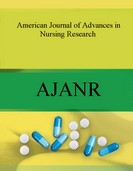Volume 12, Issue 2, 2025

Mcmed International
American Journal of Advances in Nursing Research
Issn
XXX-XXXX (Print),
2349 – 0691 (Online)
Frequency
bi-annual
Email
editorajanr@mcmed.us












